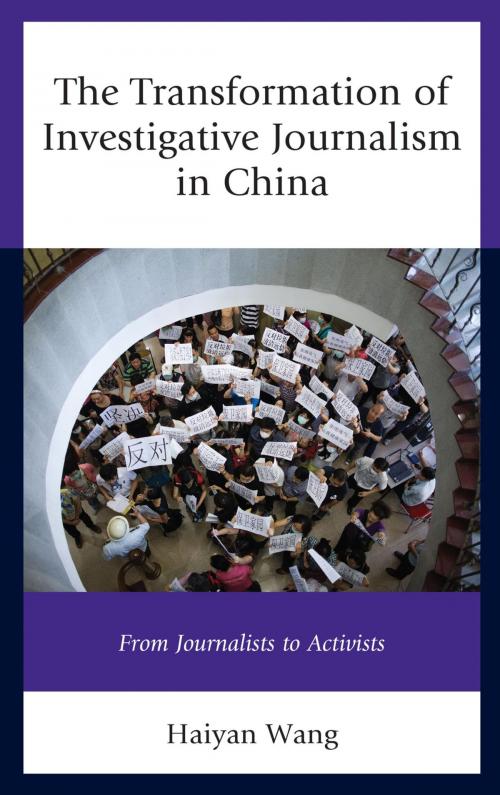The Transformation of Investigative Journalism in China
From Journalists to Activists
Nonfiction, History, Asian, China, Social & Cultural Studies, Political Science, International| Author: | Haiyan Wang | ISBN: | 9781498527620 |
| Publisher: | Lexington Books | Publication: | April 29, 2016 |
| Imprint: | Lexington Books | Language: | English |
| Author: | Haiyan Wang |
| ISBN: | 9781498527620 |
| Publisher: | Lexington Books |
| Publication: | April 29, 2016 |
| Imprint: | Lexington Books |
| Language: | English |
Investigative journalism emerged in China in the 1980s following Deng Xiaoping’s media reforms. Over the past few decades, Chinese investigative journalists have produced an increasing number of reports in print or on air and covered a surprisingly wide range of topics which had been thought impossible by the standards of the Communist era. In the 2010s, however, investigative journalism has been replaced by activist journalism. This book examines how, with the aid of new media technologies and in response to new calls for social responsibility, these new-era journalists vigorously seek to expand the scope of their journalism and their capacity as journalists. They tend to perceive themselves as more than professional journalists, and their activities are not limited to the physical boundaries of newsrooms. They are not only detached observers of society but also engaged organizers of social movements—they are social activists as well as responsible journalists who challenge state power and the party line and point to the limitations of the more traditional conceptions of journalism in China. This book analyzes how journalism in China has been gradually transformed from a tool of the state to a means of broadening calls for democratic reform.
Investigative journalism emerged in China in the 1980s following Deng Xiaoping’s media reforms. Over the past few decades, Chinese investigative journalists have produced an increasing number of reports in print or on air and covered a surprisingly wide range of topics which had been thought impossible by the standards of the Communist era. In the 2010s, however, investigative journalism has been replaced by activist journalism. This book examines how, with the aid of new media technologies and in response to new calls for social responsibility, these new-era journalists vigorously seek to expand the scope of their journalism and their capacity as journalists. They tend to perceive themselves as more than professional journalists, and their activities are not limited to the physical boundaries of newsrooms. They are not only detached observers of society but also engaged organizers of social movements—they are social activists as well as responsible journalists who challenge state power and the party line and point to the limitations of the more traditional conceptions of journalism in China. This book analyzes how journalism in China has been gradually transformed from a tool of the state to a means of broadening calls for democratic reform.















